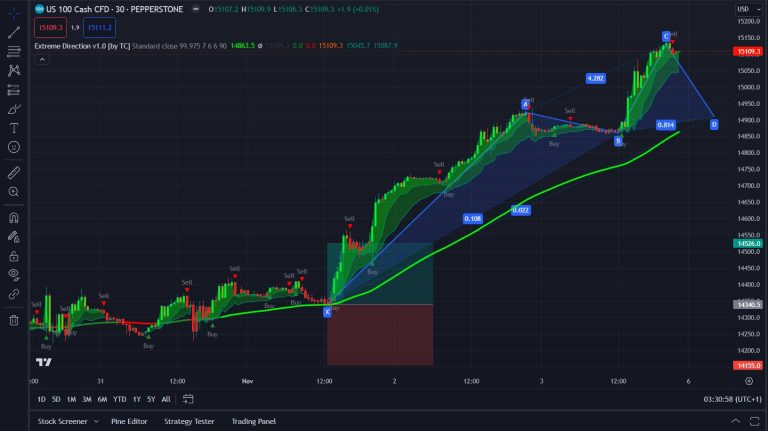The Leader Who Couldn’t Lead Herself: A Different Take on Growing Into Leadership
Maria Rodriguez was the worst manager I ever had. She was also the best thing that ever happened to my career. Not because she taught me what to do, but because she had the courage to completely reinvent herself in front of her entire team—and let us watch every messy, imperfect step of her transformation.

“I’m terrible at this,” she announced during a Monday morning meeting in 2019, after six months of disastrous leadership that had our department hemorrhaging talent. “But I’m going to figure it out, and you’re all going to help me.”
That moment of radical vulnerability marked the beginning of the most unconventional leadership development journey I’ve ever witnessed—one that challenges everything traditional management books tell us about how leaders are made.
The Mythology of Natural Born Leaders
We’ve been sold a lie that leaders emerge fully formed, like Athena from Zeus’s head. The reality Maria showed us was far messier: leadership is more like learning to cook. You burn a lot of meals, set off smoke alarms, and sometimes serve inedible disasters before you can make anything worth eating.
Experts call this the “Instagram versus reality” problem of leadership development. “We see the polished end result—the charismatic CEO, the inspiring general—but we don’t see the thousands of micro-failures that built them,” they explain. “It’s like watching a master chef on TV without seeing the years they spent crying over collapsed soufflés.”
Maria decided to show us her collapsed soufflés. She started a shared document called “Things I Screwed Up This Week” and updated it religiously. Instead of hiding her learning process, she made it transparent. We watched her practice difficult conversations with HR before having them with us. She recorded herself running meetings and asked us to critique her performance like film students analyzing scenes.
The Paradox of Reverse Mentoring
Traditional leadership development follows a top-down model: senior leaders mentor junior ones. Maria flipped this entirely. She assigned herself a “reverse mentor” from among our junior staff—23-year-old Devon, fresh out of college, who had never managed anyone but somehow understood people in ways Maria didn’t.
“Devon taught me that leadership isn’t about having answers,” Maria recalls. “It’s about asking questions that make other people discover their own answers. He was young enough to not know what he ‘shouldn’t’ say to a boss, so he told me truths no one else would.”
This reverse mentoring revealed something profound: the skills that get you promoted into leadership are rarely the skills that make you good at it. Maria had been promoted for being an exceptional individual contributor—a lone wolf who could solve any technical problem. But leadership required her to become what she calls “a wolf pack coordinator,” orchestrating others’ strengths rather than showcasing her own.
The Failure Festival
Six months into Maria’s transformation, she instituted “Failure Fridays”—monthly sessions where team members, including herself, presented their biggest mistakes like TED talks. The rules were simple: explain what went wrong, what you learned, and what you’re doing differently. No blame, no shame, just brutal honesty wrapped in dark humor.
“I presented my failure to read the room during layoff announcements,” Maria shared during one session. “I tried to be cheerful and optimistic while people were terrified about their mortgages. Devon presented his failure to speak up when he saw me making that mistake. We were all learning together.”
This approach to leadership development—collective, transparent, failure-focused—contradicts every corporate training manual. Yet it worked. Team engagement scores rose 40% in one year. Turnover dropped to zero. Other departments started poaching our “Failure Friday” concept.
The Orchestra Conductor’s Secret
The breakthrough in Maria’s development came from an unexpected source: her teenage daughter’s orchestra conductor. Watching him lead without making a sound, creating harmony from chaos through subtle gestures, Maria realized she’d been thinking about leadership all wrong.
“I was trying to be the loudest instrument,” she explains. “But leaders are conductors. They don’t make the music—they create the conditions for music to happen.”
This shift from performer to enabler required Maria to develop what researchers call “negative capability”—the ability to be comfortable with uncertainty, doubt, and not knowing. Instead of having all the answers, she learned to hold space for questions. Instead of solving problems, she learned to frame them in ways that inspired others to solve them.
The Vulnerability Vaccine
Perhaps the most radical element of Maria’s leadership development was what she called “vulnerability vaccination”—deliberately exposing herself to small doses of professional vulnerability to build immunity to the fear of appearing imperfect.
She started small: admitting she didn’t understand a technical term in a meeting. Then bigger: acknowledging she’d been wrong about a major strategic decision. Eventually, she could stand in front of the entire company and say, “I don’t know what to do here. What do you all think?”
“Traditional leadership training teaches you to project confidence even when you don’t feel it,” notes an expert. “But that creates what we call ‘the emperor’s new clothes’ problem—everyone pretending to see leadership that isn’t there. Real confidence comes from being confident enough to admit what you don’t know.”
The Proximity Principle
Maria discovered that physical distance from her team correlated inversely with her effectiveness as a leader. The executive floor, the corner office, the separate elevator—all the traditional perks of leadership—were actually obstacles to it.
She moved her desk to the middle of the open floor plan. She held walking meetings in the park instead of conference rooms. She worked from different team members’ desks one day a week, experiencing their daily frustrations firsthand.
“Leadership isn’t a position above others,” Maria learned. “It’s a position among others, just with different responsibilities. The moment you separate yourself physically, you separate yourself psychologically.”
The Time Delay Truth
One of the hardest lessons in Maria’s development was accepting the time delay between leadership actions and their results. Unlike individual contribution, where effort often yields immediate results, leadership operates on what she calls “agricultural time”—you plant seeds and wait seasons to see what grows.
“I wanted instant feedback that I was becoming a better leader,” Maria admits. “But leadership development is like going to the gym. You don’t see muscles after one workout. You just have to trust the process and keep showing up.”
This patience with herself translated into patience with her team. She stopped expecting immediate results from new initiatives. She learned to celebrate progress over perfection, trajectory over position.
The Unfinished Symphony
Three years later, Maria is unrecognizable as a leader—and she’ll be the first to tell you she’s still figuring it out. Her team has become one of the highest-performing in the company, not despite her ongoing development, but because of it.
“The moment you think you’ve finished developing as a leader is the moment you stop being one,” Maria reflects. “Leadership isn’t a destination you reach. It’s a practice you maintain, like meditation or exercise. Some days you’re better at it than others.”
The most radical insight from Maria’s journey is that leadership development isn’t about becoming someone else—it’s about becoming more yourself while making space for others to do the same. It’s not about having followers—it’s about creating more leaders.
As I watch Maria now, running meetings where she speaks the least, solving problems by asking questions, admitting mistakes before anyone notices them, I realize she taught us something business schools don’t: the best leaders aren’t the ones who seem invulnerable. They’re the ones brave enough to develop in public, to grow without guarantees, to lead by learning.
Maria Rodriguez is still the worst manager I ever had—if you’re measuring by traditional metrics from her first six months. But she became the best leader I’ve known, precisely because she was willing to be the worst first. Her journey reminds us that leadership development isn’t about ascending to perfection—it’s about descending into humanity and bringing others up with you.
The question isn’t whether you’re ready to lead. It’s whether you’re ready to learn, fail, and transform in front of the people you’re asking to follow you. Because that’s where real leadership begins—not at the summit, but in the valley, with the courage to climb while others watch.






